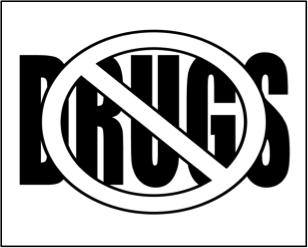Watching your friend literally self-destruct because of addiction is a frightening experience. Whether the problem stems from prescription medication or from alcohol, the irreversible damages are essentially the same. You know for sure that rehabilitation is the only solution. However, getting your friend to go to rehab is downright challenging. Addiction is a sensitive issue and when it involves someone dear to you, careful and effective intervention is needed. The challenge is how to get your friend into treatment even if the person has not been genuinely willing to take that extra step. In most instances, the road to recovery is paved by family and friends under proper circumstances.

Tips to Starting a Discussion About Treatment:
Learn the facts
Before you delve into the topic and voice your concern, make sure you fully understand the biological, psychological, and physical aspects of addiction. It helps to do your research first in order to support your claims. The National Institute on Drug Abuse defines addiction as a complex brain disease with the following characteristics:
- uncontrollable drug craving
- compulsive drug-seeking behavior
Even though addiction often starts with a personal choice, some individuals are born with biological predisposition toward this condition.
Make an initial and follow-up plan
Prior to your private conversation, create an outline of what you need to say. Do not attempt an impromptu conversation. Focus on specific behaviors that have recently raised red flags. Convey your deepest concerns especially about the general welfare of the people around you. Suggest a drug rehab facility that offers a friendly environment for the person.
Focus on the behavior
At the outset, make it very clear that you are upset about the behavior and not with the person. During the conversation, compliment the person’s good qualities. Always separate the person from the disease because this is where most people fail to convince someone to seek treatment. A person may be struggling with emotional issues and using drugs or drinking alcohol seems like the only way to block out negative feelings.

Be rational and objective
Confrontations do not produce positive results especially when you are dealing with addiction. Couch your words carefully so as not to make the person feel entirely responsible for his or her condition. Do not use judgmental words and hurtful comments or urgently demand the person to seek treatment. The overall tone of the intervention should be genuine love, compassion, and support.
Expect resistance
It is always possible that your good intentions will not be understood and appreciated by a friend or a family member who is struggling with addiction. Sometimes, this person might even deny the issue. If it happens, do not take it personally. As long as you remain calm and compassionate, your words and actions will gradually make an impact. Despite your best intentions, a loved one may remain stubborn and impervious to your pleas. Although it can be heartbreaking and frustrating, you should do your part and hope that the person will eventually decide to go into rehab.
Recovery from addiction is a long journey. If you know someone who needs serious medical attention, find a mental health professional who provide the answers and support.


